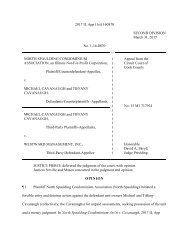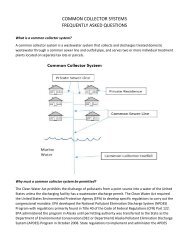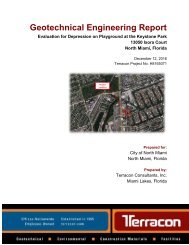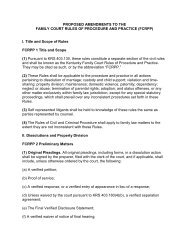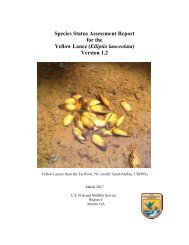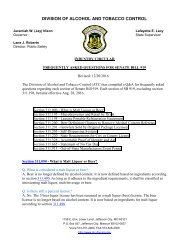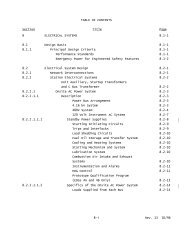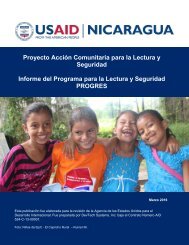COMMUNITY DISPUTE RESOLUTION IN TIMOR-LESTE
PA00MJQC
PA00MJQC
You also want an ePaper? Increase the reach of your titles
YUMPU automatically turns print PDFs into web optimized ePapers that Google loves.
legislation; however, most will only be addressed most effectively through education. In respect of<br />
the use of local regulations, government officials and civil society can also play an important part in<br />
ensuring that regulations established with their involvement do not invite human rights violations.<br />
Community education<br />
Many of the changes needed to improve the current system of community dispute resolution can only<br />
be achieved through effective community education. Significant work in this area has been done<br />
already, including by Ba Distrito partners such as Belun and JSMP. However, the scale of the work<br />
required is substantial and there is a need for these efforts to continue. Most importantly:<br />
1. The limits of community leaders’ dispute resolution powers need to be better understood:<br />
(a) It needs to be understood that, according to the law, parties may always opt to resolve a claim<br />
for civil compensation before local leaders, regardless of whether a criminal case is underway.<br />
(b) Communities must be educated in the means by which a minor criminal case can be<br />
terminated. Where a resolution is reached between the complainant and suspect, the<br />
complainant should be aware of how the complaint can be withdrawn and that it is not<br />
necessary to wait until the matter is called to court in order to do so.<br />
(c) Conversely, it must also be better understood that local leaders do not have power to<br />
determine criminal responsibility.<br />
2. Communities and their leaders need to understand the core principles for fair dispute resolution.<br />
While many of these could be usefully set out in legislation, the primary goal should be to improve<br />
the knowledge of dispute resolution participants. The most important principles in this regard are<br />
the voluntary nature of procedures, the equality of all community members, and the requirement<br />
for an independent and impartial facilitator. Education concerning the prevention of gender<br />
discrimination and the appropriate treatment of children should also be included.<br />
3. Local communities should be encouraged and supported to record the process and outcomes of<br />
local dispute resolution proceedings.<br />
Legislative changes<br />
Efforts to codify traditional principles or establish detailed procedures for local justice mechanisms<br />
are unlikely to succeed and may not produce added benefits. Instead, the government should pursue<br />
its current focus on ADR. However, some variations in the current approach should be considered:<br />
1. Community mechanisms should be subject to a different regime than commercial dispute<br />
resolution procedures. The former should be defined in a simple and accessible way (not by<br />
technical terminology). Consideration should be given to an entirely separate law for community<br />
mechanisms, which would be short, clear and simple. This would assist in ensuring the accessibility<br />
of the relevant legal regime.<br />
2. Basic principles should be set out in the law, including on the voluntariness of the process, equality<br />
of participants, and independence and impartiality of the facilitator. Clear criteria for assessing<br />
whether a facilitator is impartial would assist, as would guidance concerning in which<br />
circumstances procedures should be closed to members of the community. Principles concerning<br />
the participation of women and the role and treatment of children should also be included. The<br />
effect of violating core procedural principles should be clear according to the law.<br />
3. The law should avoid including stringent formal requirements for the outcome of communitybased<br />
dispute resolution to be recognized as binding.<br />
4. While an attempt at codification of the substance of customary law is clearly ill-advised, the law<br />
could identify key specific “traditional” norms and values which are inconsistent with the<br />
Constitution and therefore should not to be applied.<br />
Other measures<br />
Several other measures could be taken to further support these key steps:<br />
23



